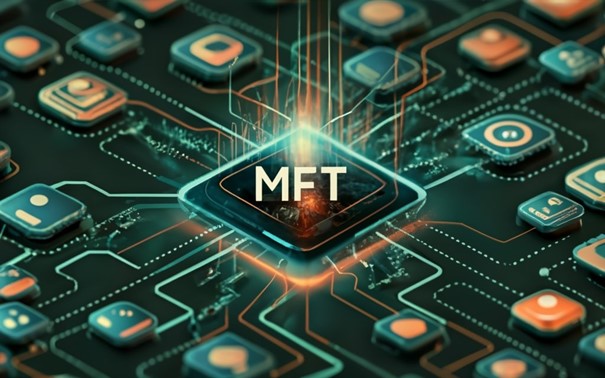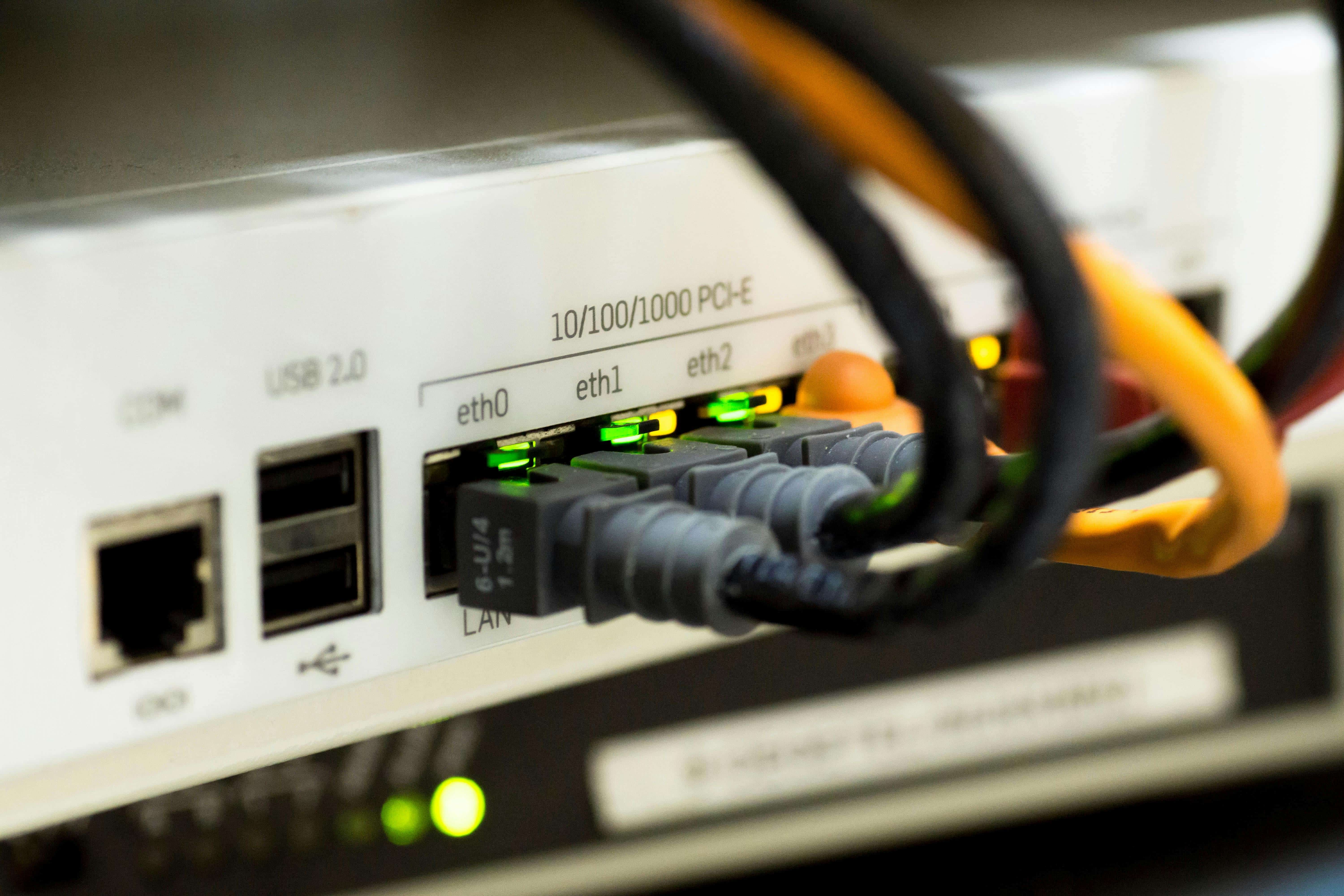The Fundamentals of Managed File Transfer and the Crucial Role of Security
Managed File Transfer (MFT) is a technology designed to ensure both the safety and reliability of file transfers. In today's world, where digital information forms the backbone of many business operations, MFT plays an indispensable role.
At its core, MFT ensures a secure and efficient transfer of files from one location to another, between different systems, applications, or servers. This can range from a simple transfer of documents between two departments within an organization to more complex data transactions taking place between different geographic locations or even between different organizations.
MFT not only provides convenience and efficiency in these processes but also ensures a high-level of security. This sets MFT solutions apart from other file transfer methods such as FTP (File Transfer Protocol) or email.
Today, information security is of great importance. With a steady increase in cyber threats and data breaches, the need to securely send and receive files is more urgent than ever. Loss, theft, or leakage of sensitive information can have devastating consequences, including financial losses, damage to the company's reputation, and in some cases, legal implications.
MFT solutions provide several security features to prevent such scenarios:
-
Encryption: MFT solutions encrypt files prior to transfer, preventing them from being intercepted and read by unauthorized parties. This process ensures that even if the data is intercepted, it is unreadable to the malicious party without the correct decryption key.
-
Authentication: MFT solutions can authenticate users before they transfer files to prevent unauthorized access. This ensures that only authorized users are able to send and receive files.
-
Authorization: MFT allows administrators to define access rights based on users or user groups. This can help in controlling access to sensitive files and prevent information from falling into the wrong hands.
-
Audit Trails: MFT solutions record in detail every file transfer that takes place. This is crucial for regulatory compliance but also helps in detecting potential security incidents.
These comprehensive security features make MFT an indispensable tool in today's business world. The ability to securely and reliably transfer files is no longer a luxury, but a necessary condition for any business that values its data.
The Profound Impact of MFT Security on Business Operations
The security of Managed File Transfers (MFT) is not just a technical necessity but has a profound influence on the entire business operation. Secure and reliable file transfer is crucial to ensure business continuity and maintain an organization's reputation in the digital world.
Let's explore some of the aspects in which MFT security makes a difference.
Protection of Sensitive Information
Companies of all sizes and from all sectors rely on the secure transfer of sensitive information. This could be financial data, customer information, intellectual property, or other confidential documents. Leakage or interception of this data can have severe consequences, both financially and in terms of reputation damage. MFT ensures encrypted transfers and strict authentication protocols, thereby better protecting this sensitive information.
Compliance with Regulations
Many industries are subject to strict regulations regarding data security and transfer. Non-compliance with these regulations can lead to heavy fines and sanctions. MFT solutions help businesses comply with these rules by offering advanced security features and detailed audit trails.
Optimization of Business Processes
By automating file transfers, businesses can save time and resources that would otherwise be spent on manual file transfers. This can also help to reduce errors and improve the overall efficiency of business processes.
Promotion of Trust
The security of MFT contributes to building and maintaining trust with customers, partners, and stakeholders. The ability to securely send and receive sensitive information is a critical element in establishing this trust.
Ultimately, the value of MFT security
So, MFT security is not just a technical facet, but also a strategic asset for businesses. By ensuring secure file transfer, MFT helps businesses protect sensitive information, comply with regulatory requirements, improve operational efficiency, and build trust with their stakeholders.
Deep Dive into Security Aspects of MFT
In a world where information security has never been more important, Managed File Transfer (MFT) offers businesses and organizations a safe haven for the transfer of their sensitive files. In addition to the foundational security features highlighted in the previous section, MFT goes beyond the basics and presents a range of advanced features that elevate data protection to a higher level. Let's examine these features in detail.
1. Non-Repudiation:
Non-repudiation is a security feature that guarantees that a sender of a message cannot deny having sent the message, and that the receiver cannot deny having received the message. In MFT, digital signatures and receipts ensure non-repudiation, aiding in maintaining the integrity of the data transfer.
2. Checkpoint Restart:
For large file transfers, a network disruption or other form of interruption can result in the loss of already transferred data and the need to restart the transfer. The checkpoint restart feature in MFT prevents this by resuming the transfer from the point where it was interrupted, saving both time and bandwidth.
3. Automated File Transfer:
MFT enables setting up automated file transfers based on a predefined schedule or triggers. This reduces the need for manual intervention, saves time, and increases efficiency.
4. Compliance Tracking:
For businesses that need to comply with strict regulations such as GDPR, HIPAA, or PCI DSS, keeping track of audit trails can be a challenge. MFT offers comprehensive reporting and tracking capabilities that comply with these regulations and helps organizations easily meet their compliance obligations.
These are just a few of the advanced security features that MFT has to offer. These features, together with the basic security features such as encryption, authentication, and authorization, ensure that MFT provides a robust and secure solution for file transfers. But what does this mean in practice? How have businesses successfully deployed MFT to improve their file transfer processes? In the following section, we will explore some of these applications.
Exploring MFT Deployment in Various Sectors
To truly understand the value and applicability of Managed File Transfer (MFT), it is useful to take a dive into the reality and see how businesses from various sectors are using this technology to secure and optimize their file exchange processes. This section highlights several of these practical examples, each demonstrating how MFT solutions uniquely contribute to improving data security and increasing operational efficiency.
First, we look at the financial sector. Within this industry, a massive amount of sensitive customer information is processed and transferred daily. As an example, we consider a well-known financial company that uses an MFT solution to securely exchange data between various departments and external partners. With MFT, the company ensured encrypted file transfer, significantly reducing the risk of data loss or theft. At the same time, the company benefited from increased efficiency in all data transfer processes.
Next, we focus on the healthcare sector, where healthcare providers deal with immense amounts of patient data. A renowned hospital implemented MFT to securely exchange patient records and medical images between different departments and physicians. This approach guaranteed the patients' privacy and improved the accuracy and speed of care provision.
Finally, within the retail sector, companies must manage substantial volumes of transaction data and confidential customer information. A leading retail company used MFT solutions to securely send and receive data between their shops, warehouses, and business partners. This enabled them to improve the safety of data transfer and promote seamless and efficient communication between their diverse entities.
These practical examples from different sectors demonstrate that MFT solutions are widely applicable and can have a significant impact. Companies can modernize and secure their file transfer processes, allowing them to focus on their core activities, knowing that their files are safely and efficiently transferred.
Secure File Transfer in the Modern World
In today's data-driven world, file transfer security cannot be ignored. The importance of secure, reliable, and efficient file transfer is vital in a wide range of sectors, from financial services and healthcare to retail.
Managed File Transfer (MFT) provides businesses and organizations with a solution that not only meets their file transfer needs but also elevates security and compliance to a higher level. By implementing MFT solutions, businesses can benefit from encrypted file transfers, automated workflows, and detailed audit trails, providing them with a robust and reliable solution for their file transfer needs.
Whether you are looking for a way to improve efficiency, comply with regulations, or simply ensure the privacy and security of your customer data, MFT is an investment worth making.
At Korper ICT, we understand the critical importance of secure and efficient file transfer. Our team of experts is ready to help you choose and implement the right MFT solutions for your specific needs. Contact us today to discover how we can help you elevate your file transfer processes to the next level.




